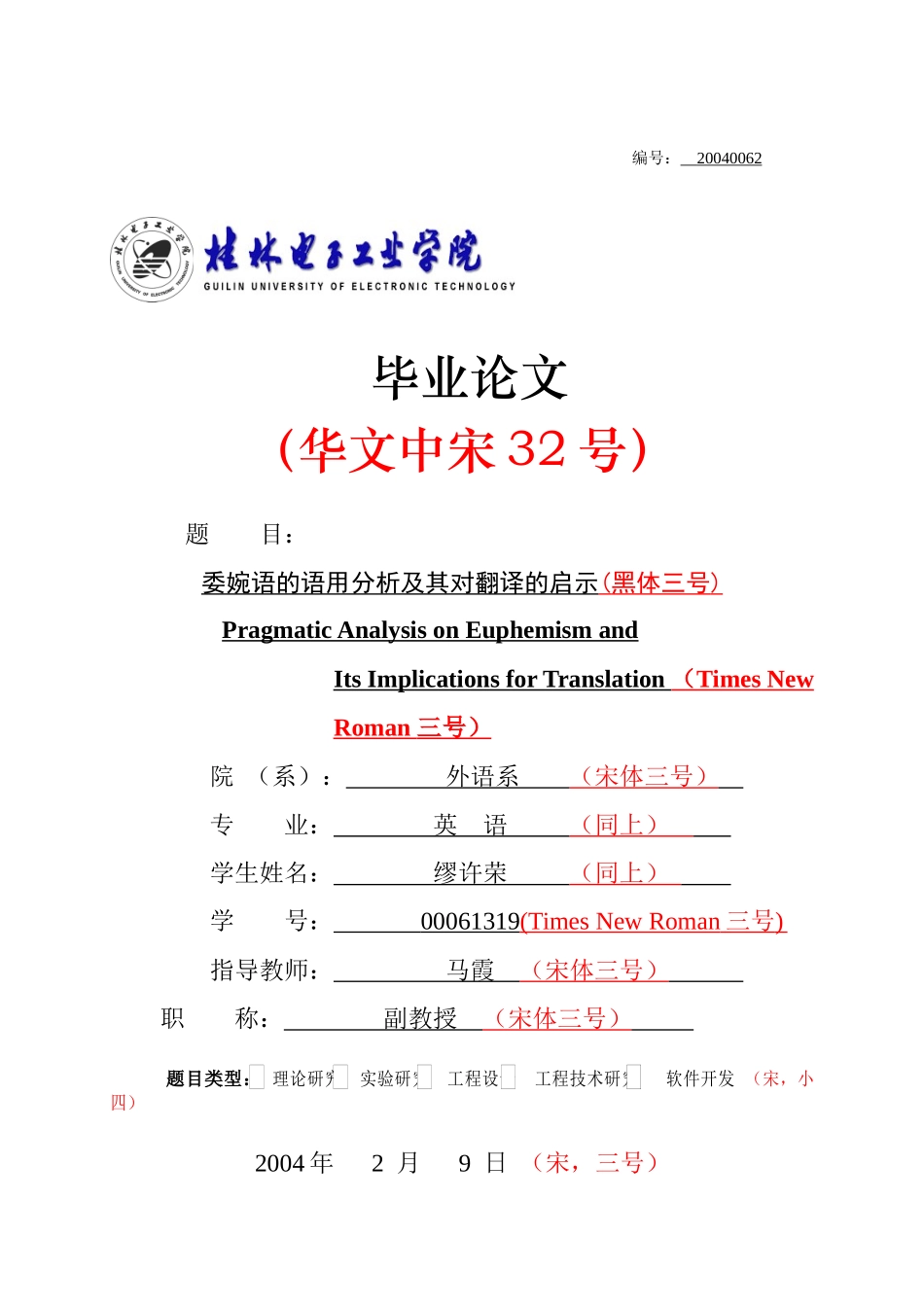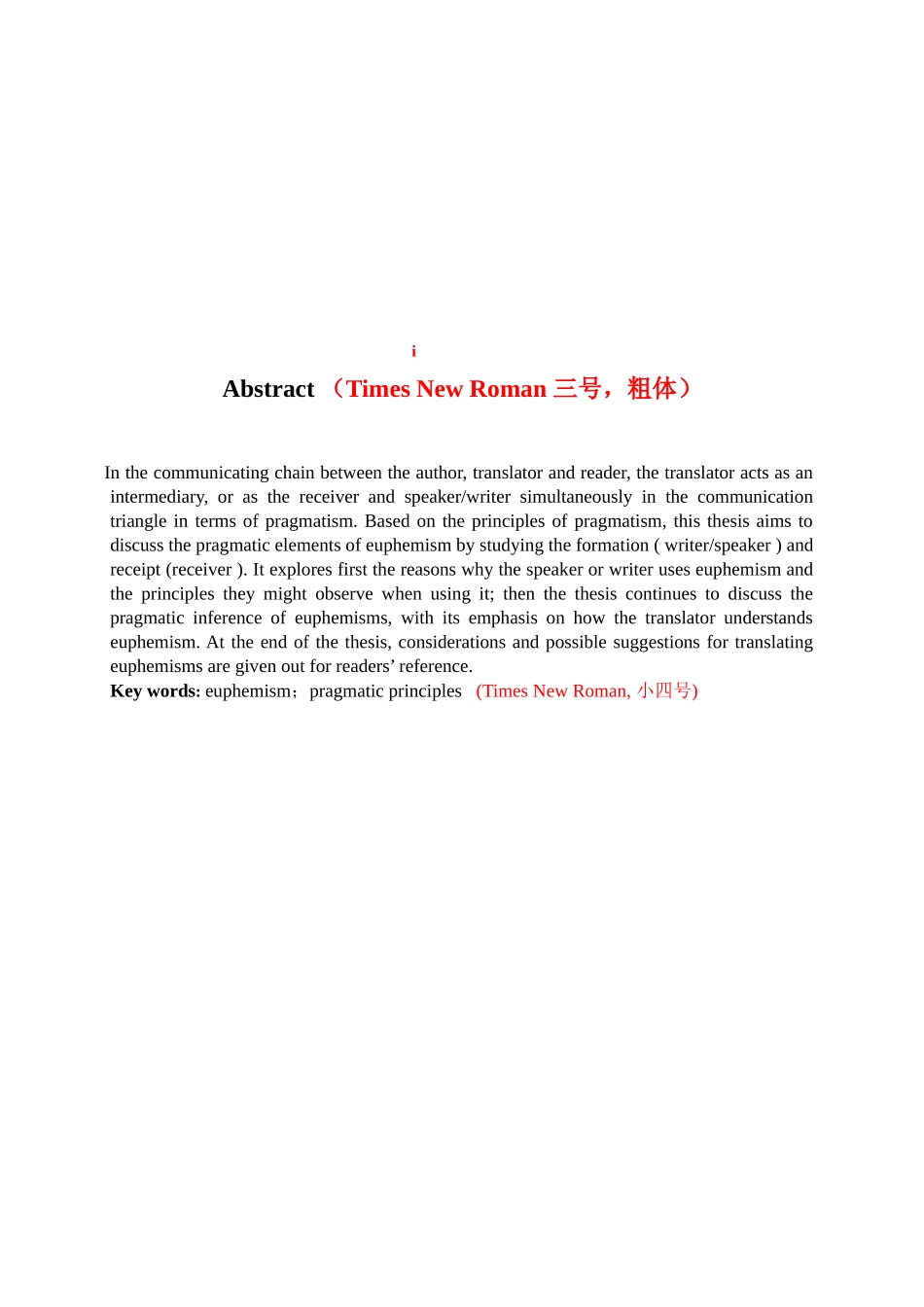编号: 20040062 毕业论文(华文中宋 32 号)题 目:委婉语的语用分析及其对翻译的启示 ( 黑体三号 ) Pragmatic Analysis on Euphemism andIts Implications for Translation ( Times New Roman 三号) 院 (系): 外语系 (宋体三号) 专 业: 英 语 (同上) 学生姓名: 缪许荣 (同上) 学 号: 00061319 (Times New Roman 三号 ) 指导教师: 马霞 (宋体三号) 职 称: 副教授 (宋体三号) 题目类型: 理论研究 实验研究 工程设计 工程技术研究 软件开发 (宋,小四)2004 年 2 月 9 日 (宋,三号)摘 要 (黑体三号)在原作者,译者,读者的关系链中,译者处于一个中介人的位置,从语用学角度分析,其实也就是同时处于交际三角中的“受众”与“写作者/演讲者”的两角。本文拟用语学中的基本原理,从委婉语这一修辞格的形成(写作者/演讲者)和接受(受众)这两极出发,探讨与委婉语相关的语用因素,即写作者/演讲者使用委婉语的目的和原则以委婉语受众如何理解委婉语的深层含义,着重探讨译者在翻译过程中如何理解并翻译委婉语。 (宋,小四号)关键词: 委婉语;语用学理据 (宋,小四号) iAbstract (Times New Roman 三号,粗体) In the communicating chain between the author, translator and reader, the translator acts as an intermediary, or as the receiver and speaker/writer simultaneously in the communication triangle in terms of pragmatism. Based on the principles of pragmatism, this thesis aims to discuss the pragmatic elements of euphemism by studying the formation ( writer/speaker ) and receipt (receiver ). It explores first the reasons why the speaker or writer uses euphemism and the principles they might observe when using it; then the thesis continues to discuss the pragmatic inference of euphemisms, with its emphasis on how the translator understands euphemism. At the end of the thesis, considerations and possible suggestions for translating euphemisms are given out for readers’ reference.Key words: euphemism;pragmatic principles (Times...


